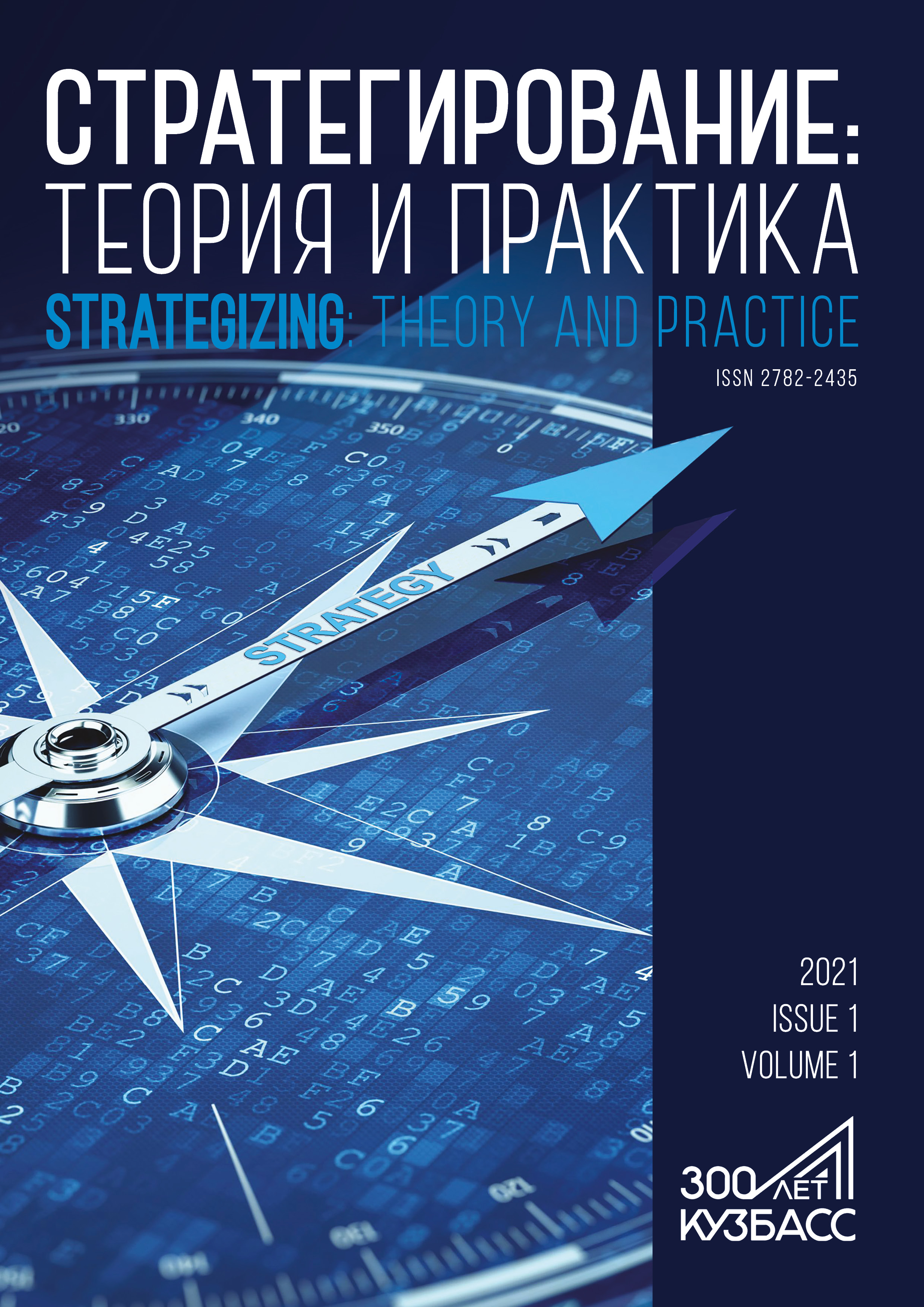Moscow, Moscow, Russian Federation
Each innovative industrial cluster is a complex hierarchical system. To study its methodology, scientists have to investigate the movement of each structural element towards common strategic goals. Philosophy gives the theory of strategizing a harmonious development. Strategists rely on philosophers in their search for the most effective research methods. Philosophers answer the questions about the role man in the world and the way people transform the natural, economic, and social reality. An effective strategy for an innovative industrial cluster should rely on a balanced approach in order to improve the quality of life and achieve the national technological sovereignty. To strategize an industrial cluster, one needs to analyze resource availability and competitive advantages, define strategic priorities and goals, develop infrastructure, consolidate participants based on common strategic goals, etc. The paper describes research methods aimed at effective cluster strategizing, including the development, creation, dissemination, and introduction of innovations into the production process. The basic principles of the strategic decision-making system are aimed at successful innovative industrial cluster enterprises that provide rational use of innovative potential and multiply in the long run. The systematic strategic approach to financial investments is a key condition for innovation clustering during the emergency period. This decision-making system for strategic investment can help managers of an innovative industrial cluster to achieve strategic goals, maximize profitability, and secure long-term success, provided that the strategy is implemented consistently and fully.
strategy, strategizing methodology, innovation, innovative cluster, decision-making system
1. Astapov KL. Financial market development strategy in crisis: analysis and recommendations. Economic Analysis: Theory and Practice. 2021;(11):2021-2052. https://doi.org/10.24891/ea.20.11.2021 (In Russ.)
2. Astapov KL, Liu Yu. Implementation of platforms’ strategy by financial companies in China and Russia. Administrative Consulting. 2020;(8):112-122. https://doi.org/10.22394/1726-1139-2020-8-112-122
3. Auzan AA, Nikishina EN. Sotsiokulturnaya ekonomika: kak kultura vliyayet na ekonomiku, a ekonomika - na kulturu [Sociocultural economics: how culture affects the economy, and how the economy influences culture]. Moscow: Lomonosov Moscow State University; 2021. 200 p. (In Russ.).
4. Blaug M. Metodologiya ekonomicheskoy nauki, ili Kak ekonomisty obyasnyayut [Methodology of economic science, or How economists explain]. Moscow: Voprosy Ekonomiki; 2004. 415 p. (In Russ.)
5. Brealey R, Myers S. Principles of corporate finance. Moscow: Olymp-Business; 2015. 1120 p. (In Russ.)
6. Van Horne D, Wachowicz JM. Fundamentals financial management. 12th ed.; transl. from Eng. Moscow: ID Williams; 2008. 1232 p. (In Russ.)
7. Gaidenko PP. Istoriya grecheskoy filosofii v eye svyazi s naukoy [The history of Greek philosophy in its connection with science]. 3rd ed. Moscow: Librocom; 2012. 262 p. (In Russ.)
8. Grundzüge einer philosophischen Hermeneutik. H-G Gadamer. Moscow: Progress; 1988. 699 p. (In Russ.)
9. Kvint VL. The concept of strategizing. Vol. 1. St. Petersburg: NWIM RANEPA, 2019. 132 p. (In Russ.)
10. Kvint VL. The concept of strategizing. Vol. 2. St. Petersburg: NWIM RANEPA, 2020. 164 p. (In Russ.)
11. Kvint V. L. The Strategic Leadership of Amir Timur: Comments on the Code. Saint Petersburg, Russia: NWIM RANEPA; 2021. - 204 p. (In Russ.)
12. A conceptual future for the Kuzbass region: strategic outlines of developmental priorities through 2071, a 50-year perspective. Ed. VL Kvint. Kemerovo: Kemerovo State University, 2022. 283 p. (In Russ.)
13. Kohanovsky VP. Filosofiya i metodologiya nauki [Philosophy and methodology of science]. Moscow: AST; Rostov-on-don: Feniks; 1999. 574 p. (In Russ.)
14. Kuhn T. The Structure of scientific revolutions; transl. from Eng. by IZ Naletov. Moscow: AST: AST MOSCOW; 2009. 317 p. (In Russ.)
15. Lakhno YuV. Certain aspects of securities market development as a complex adaptive system. Finance and Credit. 2016;31:32-41. (In Russ.)
16. Mironov VV. Obrazy nauki v sovremennoy kulture i filosofii [Images of science in modern culture and philosophy]. Moscow: Gumanitariy; 1997. 251 p. (In Russ.)
17. Sokolova IS, Gubanova EV, Solovyova SV. Use of financial instruments when forming the effective portfolio of securities. Bulletin NGIEI. 2016;9(123-137). (In Russ.)
18. Strategizing of the Tourism and Trade Show Industries in Kuzbass Region. Ed. VL Kvint. Kemerovo: Kemerovo State University, 2021. 371 p. (In Russ.)
19. Strategizing of Kuzbass economic and investing development. Ed. VL Kvint. Kemerovo: Kemerovo State University, 2020. 361 p. (In Russ.)
20. Tutov LA, Shulevsky NB. Istoriya i filosofiya nauki dlya aspirantov ekonomicheskikh fakultetov universitetov [History and philosophy of science for graduate students of economic faculties and universities]. Moscow: MAX Press; 2010. 261 p. (In Russ.)
21. Khvorostyanaya AS. Strategirovanie industrii mody: teoriya i praktika [Fashion industry strategizing: theory and practice]. St. Peterburg: RANEPA; 2021. 272 p. (In Russ.)
22. Jaspers K. Vom Ursprung und Ziel der Geschichte. Moscow: Politizdat; 1991. 527 p. (In Russ.)
23. Ohmae K. The Mind of the Strategist: The Art of Japanese Business. McGraw-Hill;1982. 283 p.





